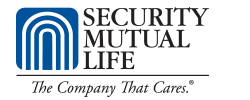Hidden Fees are Harming 401(k) Savings
Transcript of Podcast Episode 132
A recent study by Employee Fiduciary, LLC, is causing headaches in the retirement-planning community. The company published a study at the end of April that indicated that more than 75 percent of 401(k) plans paid hidden fees, the bulk of which come in the form of revenue sharing and what are known as “wrap” fees.
Since 2012 the Department of Labor has required 401(k) providers to disclose their fees in their 408(b)(2) fee disclosures. The regulations require providers to deliver all the information necessary to:
- Assess the reasonableness of fees charged directly and indirectly by a service provider and paid out to both that vendor and any affiliates or subcontractors.
- Identify any potential conflicts of interest.
- Satisfy fiduciary reporting duties and disclosure requirements.
But the required disclosures come up short when it comes to the hidden fees. These fees simply cannot be found in the required disclosures. According to the study, following the money is “a difficult job even for those employers willing to invest the time and energy to do so.” The disclosures “more often take the form of confusing, multi-page documents that are difficult for someone without years of 401(k) expertise to decipher.”
The study looked at 104 small-business plans, all with less than $5 million in assets. For those plans, the total fees averaged 1.18 percent of assets. Their estimated average administrative fee is $445.43 per participant, with 52 percent of the fees considered “hidden.”
Over time this has a significant impact on the account balance. According to Employee Fiduciary, when factoring in compound interest over several decades, the hidden fees could easily end up costing hundreds of thousands of dollars to plan participants.
So-called “wrap fees” are common in the investment management industry. They are simply a way in which an investment manager can charge one all-encompassing fee, rather than charging separately for things like commissions and administrative costs. Asset managers often charge wrap fees of 1 percent to 3 percent of the assets they manage, and they do so every year. Over the long haul, the cumulative effect of wrap fees can be substantial.
According to Eric Droblyen, the author of the study, “Hidden 401(k) fees are incredibly profitable for these providers, so it’s in their best interest for their fee disclosures to be confusing.”
To top things off, the study also found that while investment expenses have generally dropped in recent years, 401(k) administration fees have remained steady.
When asked how this problem could be addressed, Droblyen quipped “It’s a big problem. It’s also an easy one to fix – make hidden 401(k) fees illegal.”
This podcast is brought to you by Security Mutual Life Insurance Company of New York, The Company That Cares®. This podcast is designed to provide general information regarding the subject matter covered and is believed to be current as of the date of publication. It is not intended to serve as legal, tax or other financial advice related to individual situations, because each person’s legal, tax and financial situation is different. Specific advice needs to be tailored to your particular situation. Security Mutual and its agents may not give legal or tax advice. Therefore, please consult with your own attorney, tax professional and/or other advisors regarding your specific situation.
